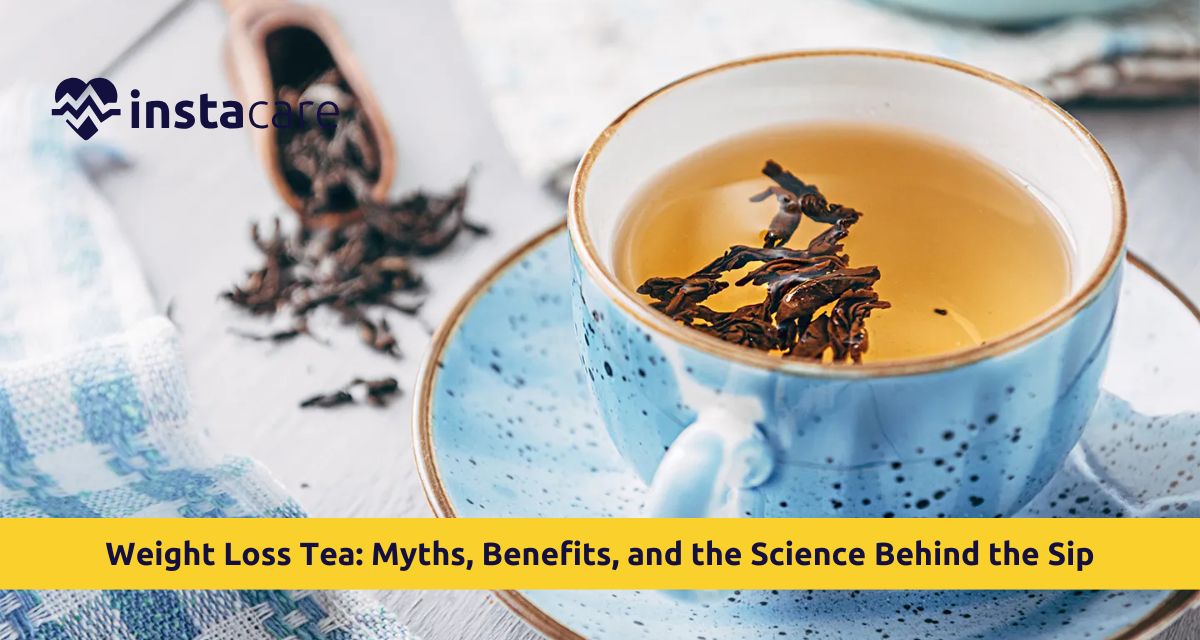What is Weight Loss Tea?
How Weight Loss Teas Work?
- Metabolism Stimulant: Catechin compounds such as EGCG in green tea will accelerate metabolism and boost fat burning. Experiments have confirmed that green tea will boost calorie burning by 3-4% on a daily basis.
- Thermogenesis: Polyphenols and caffeine will stimulate thermogenesis-the rate at which your body emits heat-burning excess calories. Black tea for high metabolism has moderate amounts of caffeine to bring about this action.
- Fat Oxidation: The oolong tea benefits for weight loss system has been scientifically established to involve increased fat burning, aimed at the visceral stores.
- Reduction in Water Retention: Some of the herbal infusions possess a gentle diuretic action, making it an easily accessible tea for bloating and weight loss via reduction of water retention over the short term.
Best Teas for Weight Loss
- Green Tea: Most comprehensively researched option for weight control. Green tea used for weight reduction must be catechin-enriched and low to moderate in caffeine to stimulate the metabolic activity. Epidemiologic evidence suggests moderate consumption of green tea can be utilized to generate modest weight reduction with diet and exercise.
- Matcha Tea: This is powdered green tea that's full of intense benefits. Matcha tea for fat loss is greener than green tea because you're consuming the whole leaf. Its all-day slow release inhibits jitters that coffee contains.
- Oolong Tea: Partially oxidized but not fully, oolong takes the advantage of both worlds. It was demonstrated to increase burning fat and metabolism compared to green or black tea consumption.
- Black Tea: Fewer catechins than green tea, metabolic black tea has other polyphenols known as theaflavins. It was demonstrated to increase gut health and metabolic well-being.
- Herbal Infusions: Other herbal teas containing fat loss supplements like such herbs of ginger (digestive aid), hibiscus (blood pressure regulation), and peppermint (digestive aid). Less studied for fat loss, but still a hydrating and antioxidant without the side effect of caffeine.
Read More: 5 Dandelion Tea Side Effects
When and How to Drink Weight Loss Tea?
- Morning Tea: Drinking tea with or after breakfast helps speed up metabolism. Green tea or matcha gives invigorating caffeine for morning energy.
- Pre-Exercise: Pre-exercise ingestion of tea 30-60 minutes prior to exercise can potentially augment fat burning through exercise. Caffeine improves body functioning and withholds.
- Mid-Morning or Afternoon: Mid-morning or afternoon tea suppresses hunger and keeps one well-hydrated. Avoid tea intake near meals because it prevents iron absorption.
- Night thoughts: Avoid caffeinated teas after 3 pm to avoid sleep interference. Herbal can be taken at night.
Preparation Tips:
- Green tea must be steeped between 160-180 Fahrenheit for 2-3 minutes to avoid bitterness and preserve healthy constituents
- Black and oolong teas are not temperature-restricted
- Sugar or sweetener is not to be added in giganormous quantities because that would totally steal the caloric benefit
Common Myths and Misconceptions
- Myth: Tea Melts Belly Fat: The idea of flushing belly fat using tea cleanse for belly fat is reducing biology to the point of weight loss. Spot reduction does not exist; net caloric deficit will result in fat loss all over the body. Although some teas make one less puffy, which is different from fat loss.
- Myth: Detox Teas Flush Toxins Out: Detox marketing based on the use of tea for weight loss is deceptive in its fraudulence. Internally cleansing procedures of the body do not involve any particular teas to be utilized. Detox drinks do nothing but water loss with laxative effect.
- Myth: Tea Alone Can Cause Dramatic Weight Loss: There is no one able to achieve dramatic weight loss from any single tea without a change of lifestyle in diet and exercise. Weight loss test benefit largely comprised of well-donned change of lifestyle.
- Myth: The More the Merrier: Excessive use does not speed up effects and can lead to side effects of weight loss tea such as insomnia, nervousness, gastrointestinal disturbance, and interaction with nutrients.
- Myth: All Safe Teas: Some teas in the market have hidden ingredients, ingredients of over-the-counter drugs, or hidden laxatives that may be dangerous to one's health.
Safety and Precautions
- Caffeine Sensitivity: Caffeine-sensitive individuals may experience jitters, nervousness, or insomnia. Use low dose and monitor response.
- Gastrointestinal Effects: Oxycolic ingredients in some consumer products result in cramps, diarrhea, and electrolyte loss. Avoid these products with senna, cascara, or other stimulant laxatives.
- Interference with Nutrients: Tea tannin will interfere with iron absorption. Ingestion of tea must be followed between meals but not concurrently with iron-containing foods by anemia patients.
- Drug Interactions: Tea compounds interact with anticoagulants, antihypertensives, etc. Investigate possible interactions with physicians.
- Pregnancy and Lactation: Restrict caffeine use in pregnancy. No use of herbal teas with adverse effects not reported.
- Quality Issues: Select well-known brands with label information listed. There are adulterants or off-labels in them.
Conclusion

